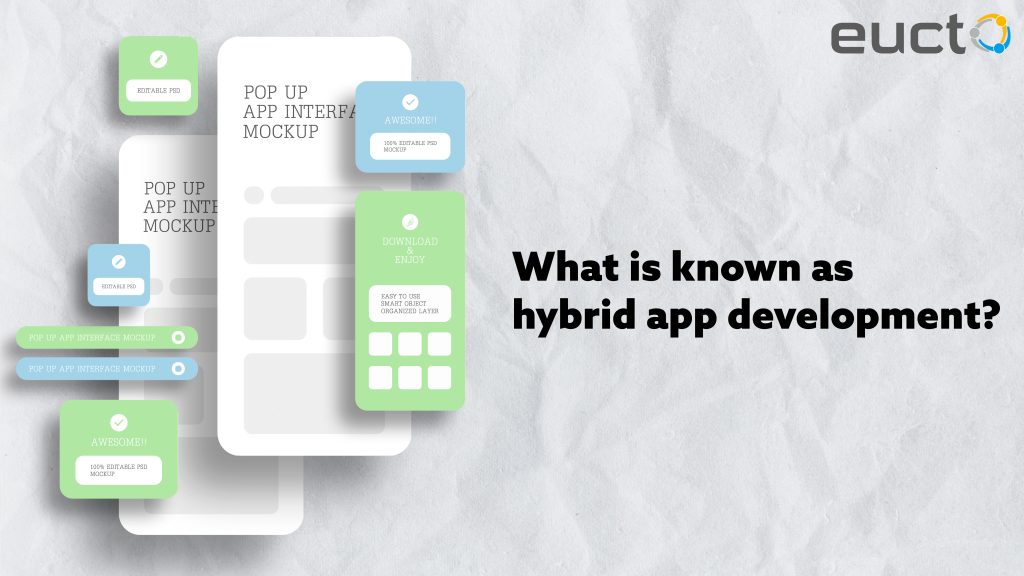
Building Cross-Platform Apps with Hybrid Development
Digital Marketing agency in Chennai have also leveraged hybrid app development to provide cost-effective solutions to their clients. By utilizing hybrid app development frameworks, such as React Native or Ionic, these agencies can deliver high-quality mobile applications that work seamlessly across both iOS and Android platforms. This approach allows them to cater to a wider audience while optimizing resources and maximizing efficiency.
Understanding Hybrid Apps
Hybrid apps embed a mobile-optimized web app (using HTML, CSS, JavaScript) inside a native container app that provides access to native device capabilities via API bridges. The web code provides cross-platform portability while the native wrapper facilitates app store distribution and leverages device features like cameras, push notifications etc.
This mix allows developers to build apps using web code that can function appropriately on different devices. The end result is an app that runs natively on devices but shares the same core codebase across platforms, helping development teams maximize reach.
Hybrid Platforms and Tools
Popular application development frameworks like React Native, Flutter, Xamarin, Ionic and PhoneGap provide tooling to streamline hybrid app building. They offer reusable UI components along with solutions to package the HTML/CSS/JS bundle into native wrappers while exposing native plug-ins for device access.
Most solutions today use Apache Cordova under the hood to handle native integration while letting developers focus on UI code. Robust communities behind many hybrid platforms also foster rich extension ecosystems and third party services. This entire toolchain lowers barriers for delivering high quality hybrid mobile apps.
Key Benefits of Hybrid Apps
Hybrid app development brings compelling advantages like:
1. Write Once, Run Anywhere Portability: Single codebase runs natively on both major mobile platforms.
2. Faster Development Cycles: Leverage web code skills and reuse UI code without platform-specific rewriting.
3. Lower Costs: Maintaining one app instead of two distinct native apps requires fewer engineering resources.
4. Quick Prototyping: Create prototypes that feel like native apps for demonstrability.
5. Access to Native Features: Utilize mobile hardware and software capabilities via JavaScript APIs.
6. Painless Updates: Update business logic and UI once to update app on all platforms.
When Is Hybrid Right for You?
Weighing your mobile use case needs is crucial before picking development approaches. Hybrid apps bring the best return for applications like:
• Enterprise apps for internal employee/stakeholder use.
• Apps requiring access to native phone features like camera, GPS, notifications etc.
• Applications emphasizing cross-platform reach over specialized platform polish.
• Apps focused more on data/content rather than intensive gaming/graphic needs.
• Prototyping to demonstrate ideas before native development.
If advanced branding, animations and platform-exclusive capabilities are central to product goals rather than portability, specialized native app development may prove optimal.
Emerging Advancements
As mobile platforms continue maturing, a multiplicity of technical and commercial factors will co-shape hybrid app adoption. Performance hits from the webview abstraction layer may diminish as JavaScript engines improve. React Native’s model of translating to “near native” code could gain more adherence. Flutter’s unified framework spanning mobile, desktop and web shows promise. Commercial requirements around branding and customer reach will also influence cross-platform technical decisions.
Ultimately, hybrid development keeps crucial tech accessible for organizations lacking expansive engineering bandwidth. It offers the best of the web’s reach and native’s capability. And innovators are just getting started exploring this versatile multi-platform mobile frontier.
